Find Help
More Items From Ergsy search
-
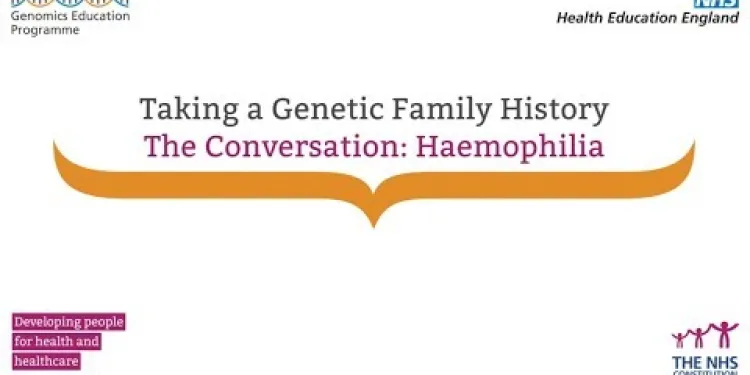
Haemophilia
Relevance: 100%
-
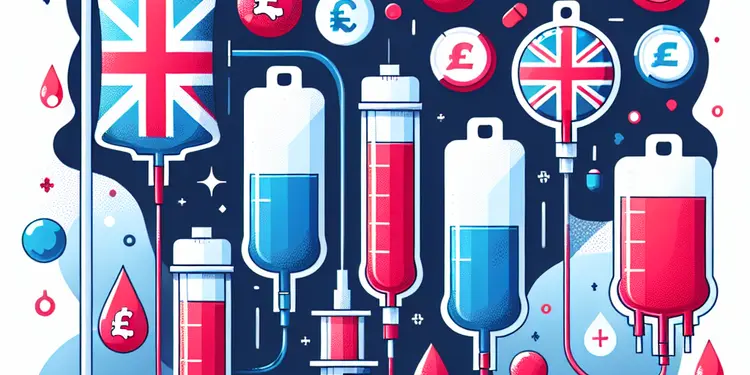
What types of blood products can be transfused?
Relevance: 17%
-

What is plasma, and why might it be transfused?
Relevance: 16%
-

Can certain medical conditions prevent receiving blood transfusions?
Relevance: 15%
-
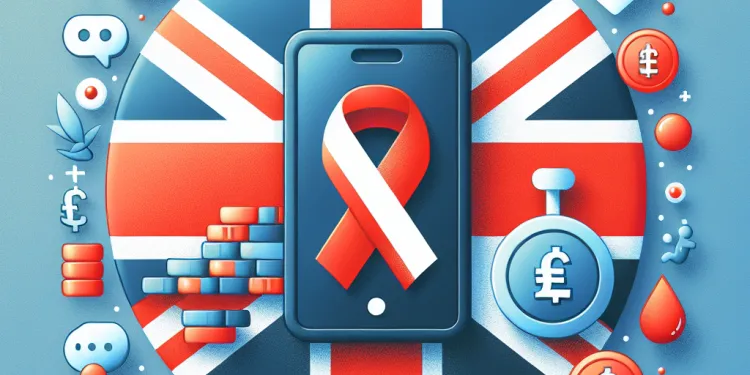
Is HIV only a concern for certain groups of people?
Relevance: 13%
-

Blood Product Transfusions
Relevance: 12%
-
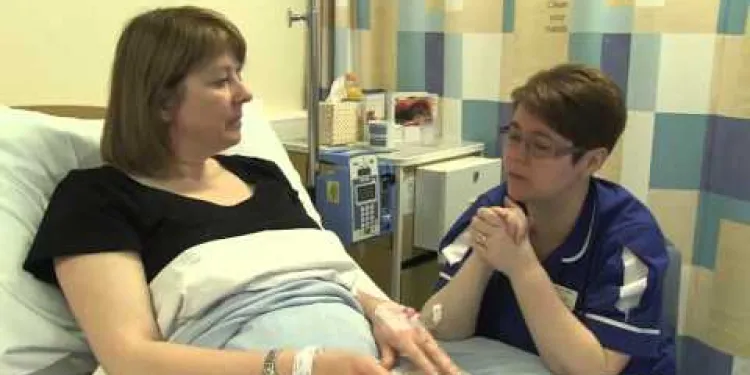
Blood Transfusion
Relevance: 12%
-
Should individuals with certain medical conditions avoid aspirin?
Relevance: 12%
-
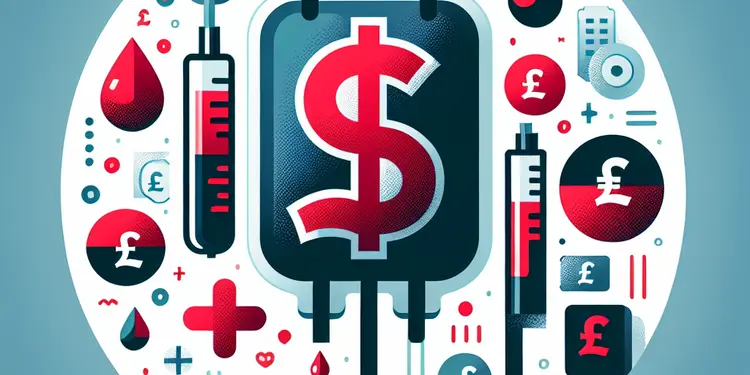
What are some common reasons blood transfusions are needed?
Relevance: 5%
-
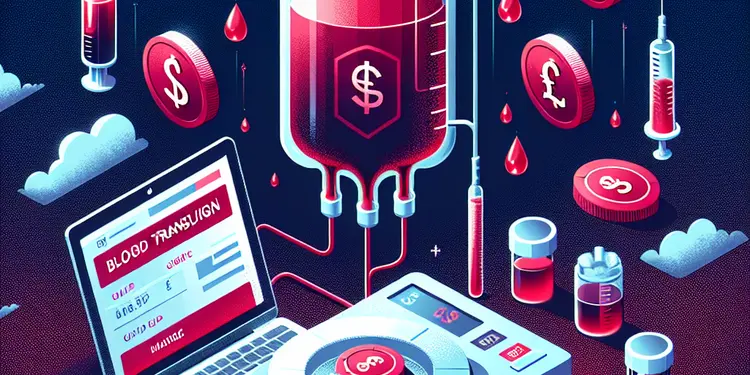
Why might someone need a blood transfusion?
Relevance: 5%
Understanding Haemophilia
Haemophilia is a rare, inherited bleeding disorder in which the blood does not clot properly. People with this condition experience prolonged bleeding after an injury or surgery, and in severe cases, they may experience spontaneous bleeding without any apparent cause. This genetic disorder is caused by the deficiency or absence of clotting factors, which are proteins in the blood that control bleeding.
Types of Haemophilia
Haemophilia primarily comes in two forms: Haemophilia A and Haemophilia B. Haemophilia A is more common and involves a deficiency of clotting factor VIII, while Haemophilia B, also known as Christmas disease, is caused by a deficiency of factor IX. Both types are passed down through families and predominantly affect males, although females can be carriers and, in rare cases, manifest mild symptoms themselves.
Symptoms and Diagnosis
The key symptoms of haemophilia include excessive bleeding from cuts or injuries, easy bruising, spontaneous bleeding into joints, and prolonged bleeding after surgery or dental procedures. Diagnosis usually involves blood tests to measure the level of clotting factors. In the UK, haemophilia is often diagnosed in infants or young children, particularly if there is a known family history of the disorder.
Treatment and Management
While there is no cure for haemophilia, it can be effectively managed with regular infusions of the deficient clotting factor to prevent and control bleeding episodes. The NHS provides comprehensive care through specialised haemophilia treatment centres across the UK, which offer patients access to haematologists, physiotherapists, and support groups. In addition to medical treatment, individuals with haemophilia are advised to avoid activities that could lead to injury and to work closely with their healthcare providers to maintain their health.
Living with Haemophilia
With proper management, most people with haemophilia can lead healthy lives. Awareness and education are crucial, both for patients and their families, to ensure early intervention and effective treatment. Additionally, advancements in gene therapy research offer promising hope for future breakthroughs. The Haemophilia Society in the UK provides invaluable resources and support for those affected by the condition, promoting awareness and advocating for patient needs.
Understanding Haemophilia
Haemophilia is a rare condition you are born with. It means your blood does not clot or stop bleeding well. If you get hurt or have surgery, you might bleed for a long time. Sometimes, people with haemophilia can bleed inside their bodies without any reason. This happens because they have less of certain proteins in their blood that usually help stop bleeding.
Types of Haemophilia
There are two main types of haemophilia: Haemophilia A and Haemophilia B. Haemophilia A is more common. It means you do not have enough of a protein called factor VIII. Haemophilia B means you do not have enough of a protein called factor IX. Haemophilia mostly affects boys, but girls can carry the condition and sometimes have mild symptoms, too. Haemophilia runs in families.
Symptoms and Diagnosis
If you have haemophilia, you might bleed a lot from small cuts, bruise easily, or bleed inside your joints. You can also bleed a lot after surgeries or when the dentist works on your teeth. Doctors can find out if you have haemophilia by doing blood tests. In the UK, haemophilia is often found in babies or young kids, especially if someone in the family has it.
Treatment and Management
Haemophilia does not have a cure, but you can manage it. Doctors help by giving you the clotting factor you are missing. This helps control bleeding. In the UK, there are special health centres for people with haemophilia. There you can find doctors, physiotherapists, and support groups to help you. It's important to avoid activities that could cause injuries and work closely with your health team to stay healthy.
Living with Haemophilia
With the right care, most people with haemophilia can live healthy lives. Learning about the condition helps you and your family get the right care fast. New research into gene therapy might make treatment better in the future. The Haemophilia Society in the UK offers support and information for people with haemophilia and their families.
Frequently Asked Questions
What is haemophilia?
Haemophilia is a genetic disorder where the blood does not clot properly, leading to excessive bleeding.
What are the different types of haemophilia?
The most common types are Haemophilia A, which involves a deficiency in clotting factor VIII, and Haemophilia B, which involves a deficiency in clotting factor IX.
How is haemophilia diagnosed?
Haemophilia is diagnosed through blood tests that measure the clotting factor levels in the blood.
What are the symptoms of haemophilia?
Symptoms may include prolonged bleeding, frequent nosebleeds, joint pain and swelling, and unexplained bruises.
Is haemophilia more common in males or females?
Haemophilia is much more common in males because it is an X-linked recessive disorder.
Can haemophilia be cured?
There is currently no cure for haemophilia, but it can be managed with treatment to prevent and control bleeding episodes.
How is haemophilia treated in the UK?
Treatment typically involves replacement therapy, where missing clotting factors are infused into the bloodstream. Other treatments may include antifibrinolytics and physiotherapy.
Can people with haemophilia lead normal lives?
Yes, with proper treatment and lifestyle adjustments, people with haemophilia can lead full and active lives.
What should someone do if they have a bleeding episode?
If you have a bleeding episode, you should apply pressure and ice to the area and seek medical treatment immediately if necessary.
Are there support groups for people with haemophilia in the UK?
Yes, organisations like The Haemophilia Society offer support, information, and services for individuals and families affected by bleeding disorders.
Can haemophilia be prevented?
Since haemophilia is a genetic disorder, it cannot be prevented. However, genetic counselling can help families understand their risks.
Is genetic testing available for haemophilia?
Yes, genetic testing is available and can be used to determine if someone is a carrier or likely to pass the condition on to their children.
What factors can exacerbate bleeding in haemophilia?
Injuries, surgeries, and certain medications like aspirin and non-steroidal anti-inflammatory drugs can exacerbate bleeding.
How does haemophilia affect daily life?
With appropriate management, many individuals with haemophilia manage to balance treatment with daily activities. However, they may need to avoid certain sports or activities that increase the risk of injury.
What is the life expectancy for someone with haemophilia?
With modern treatments and proper management, people with haemophilia can have a life expectancy close to that of the general population.
What is Haemophilia?
Haemophilia is a health problem where blood does not clot properly. This means if you get a cut, it might bleed for a long time.
People with haemophilia might bruise easily. Sometimes, they can bleed inside their body.
Haemophilia is something you can be born with. It is because of something different in your genes.
If you have haemophilia, you can see doctors who know how to help. They can give you medicine to make bleeding slow down or stop.
Helpful tools:
- Family and friends can help you when you need them.
- Doctors and nurses can help with advice and medicine.
- A medical bracelet can tell others about your haemophilia in an emergency.
Haemophilia is a problem that people are born with. It makes blood not stop flowing easily. This means if they get a cut, they might bleed a lot.
What kinds of haemophilia are there?
Haemophilia is a health problem. It makes it hard for blood to clot. Clotting is when blood gets thick to stop a cut from bleeding.
There are two main kinds of haemophilia:
- Haemophilia A: This is when the blood is missing a protein called Factor 8. Most people with haemophilia have this kind.
- Haemophilia B: This is when the blood is missing a protein called Factor 9. It is less common than Haemophilia A.
If you or someone you know has trouble understanding, you can:
- Use simple words and short sentences to explain.
- Ask a doctor or nurse for help.
- Look at pictures or videos that explain haemophilia.
There are two main types of haemophilia. Haemophilia A happens when the body doesn't have enough factor VIII. Haemophilia B happens when the body doesn't have enough factor IX.
How do doctors know if someone has haemophilia?
To find out if someone has haemophilia, doctors do a special blood test. This test checks how well the blood can make clots.
What are the signs of haemophilia?
Haemophilia is a condition that makes it hard for blood to clot. This means people with haemophilia bleed more easily.
Here are some signs to look for:
- Lots of bruises on the body.
- Nosebleeds that don't stop quickly.
- Bleeding gums after brushing teeth.
- Pain and swelling in joints, like knees and elbows.
- Bleeding for a long time after cuts or injuries.
If you think you or someone you know might have haemophilia, it's important to see a doctor. They can help with treatment and care.
Here are some tips to help:
- Use soft toothbrushes to avoid gum bleeding.
- Be careful during activities to avoid injuries.
You might have:
- Bleeding that lasts a long time
- Nosebleeds a lot
- Hurting and swelling in your joints
- Bruises that you don't know where they came from
Use simple words and talk to a doctor if you feel unwell.
Do more boys or girls have haemophilia?
Haemophilia happens more often in boys. This is because of genes on the X chromosome.
Can haemophilia be fixed?
There is no cure for haemophilia right now, but doctors can help. They can give you treatment to stop and control bleeding.
How do doctors help people with haemophilia in the UK?
In the UK, doctors help people with haemophilia by giving them special medicine. This medicine helps their blood to clot, which means it stops bleeding.
People with haemophilia might also see a special doctor called a haematologist who knows a lot about blood.
Sometimes, they need to visit the hospital for more help.
Here are some things that can help you understand or remember:
- Use pictures and videos to learn more.
- Ask a friend or family member to explain things to you.
- Keep notes or a diary of what the doctor says.
Treatment usually means giving medicine to help blood clot better. This medicine is put into the blood. Other ways to help include medicines to stop bleeding and exercises to make the body stronger.
Can people with haemophilia have normal lives?
Haemophilia is a condition that affects how blood clots. This can make bleeding last longer.
But with care, people with haemophilia can do many normal things.
How to live well with haemophilia:
- See your doctor often.
- Take special medicine to help blood clot.
- Be careful with sports to avoid getting hurt.
- Learn first aid to stop bleeding quickly.
Use tools like reminder apps to take medicine on time. You can also talk to others with haemophilia to share tips and support.
Yes, people with haemophilia can live full and active lives if they get the right treatment and make changes to how they live.
What to Do if Someone is Bleeding
If you see blood coming from a cut or wound, stay calm. Here are steps you can follow:
- Stay Calm: Try to stay relaxed and take deep breaths.
- Use Pressure: Put a clean cloth or bandage on the cut. Press down to stop the bleeding.
- Raise the Cut: If you can, lift the part of the body that is bleeding higher than the heart.
- Get Help: Ask for help if the bleeding does not stop. Call an adult or emergency services.
Tools that can help:
- Bandages: Keep bandages in your home to cover cuts.
- First Aid Kit: It is good to have a first aid kit with things you need for small injuries.
- Phone: Use a phone to call for help if you need it.
If you start bleeding, press on the cut with your hand and put ice on it. If it does not stop, go to the doctor right away.
Is there a group to help people with haemophilia in the UK?
Yes, there are groups that can help people with haemophilia in the UK.
These groups can give support and advice to people with haemophilia.
If you want to talk to other people who have haemophilia, these groups can help you.
You or a family member can ask your doctor or nurse for help finding a group near you.
You can also check online for haemophilia support groups in the UK.
Yes, The Haemophilia Society helps people with bleeding problems. They give support, share information, and have services for people and families who need it.
Can we stop haemophilia from happening?
Haemophilia is something you are born with. It happens because of a change in your genes. Right now, doctors cannot stop it from happening before birth.
If someone in your family has haemophilia, talking to a doctor can help. The doctor can tell you if your children might have it.
Doctors and nurses can help people with haemophilia stay healthy. They teach how to take care of yourself and what to do if you get hurt.
Using pictures and simple words can help understand more. There are also apps that explain health in easy ways.
Haemophilia is something people are born with. You can't stop it from happening. But, families can talk to a special doctor to learn more about it.
Can you get a test for haemophilia genes?
Yes, there is a test to see if you have genes for haemophilia.
The test looks at your DNA. DNA is what makes you, you.
Helpful Tools:
- Talk to your doctor. They can help explain the test.
- Ask a family member to support you.
- Use pictures or videos to understand better.
Yes, you can get a genetic test. This test shows if you might pass a condition to your children.
What can make bleeding worse for people with haemophilia?
Haemophilia is a condition that makes it hard for blood to clot. This means bleeding can be a big problem.
Here are some things that can make bleeding worse:
- Getting hurt or injured
- Doing activities that are rough, like sports
- Taking some medicines, like aspirin
- Not having enough medical check-ups
If you or someone you know has haemophilia, it is important to be careful and tell a doctor about any bleeding.
Using simple pictures or videos can help understand how to stay safe.
Getting hurt, having surgery, or taking some medicines like aspirin can make bleeding worse. These medicines are called anti-inflammatory drugs.
What is life like with haemophilia?
People with haemophilia can live normal lives with the right help. They might need to be careful and not play some sports. These sports can cause injuries.
How long can someone with haemophilia live?
People with haemophilia can live a long life if they get good care.
It is important to get treatment from doctors. They can help keep you healthy.
Ask questions and learn as much as you can. Getting help from family, friends, and doctors is important.
You can use tools like picture books, videos, or apps to learn more. These can make things easier to understand.
Remember, with the right help, you can stay healthy and live a long life.
Today, there are good treatments to help people with haemophilia. With the right care and treatment, people with haemophilia can live as long as other people.
Useful Links
This website offers general information and is not a substitute for professional advice.
Always seek guidance from qualified professionals.
If you have any medical concerns or need urgent help, contact a healthcare professional or emergency services immediately.
Some of this content was generated with AI assistance. We’ve done our best to keep it accurate, helpful, and human-friendly.
- Ergsy carfully checks the information in the videos we provide here.
- Videos shown by Youtube after a video has completed, have NOT been reviewed by ERGSY.
- To view, click the arrow in centre of video.
- Most of the videos you find here will have subtitles and/or closed captions available.
- You may need to turn these on, and choose your preferred language.
- Go to the video you'd like to watch.
- If closed captions (CC) are available, settings will be visible on the bottom right of the video player.
- To turn on Captions, click settings .
- To turn off Captions, click settings again.
More Items From Ergsy search
-

Haemophilia
Relevance: 100%
-

What types of blood products can be transfused?
Relevance: 17%
-

What is plasma, and why might it be transfused?
Relevance: 16%
-

Can certain medical conditions prevent receiving blood transfusions?
Relevance: 15%
-

Is HIV only a concern for certain groups of people?
Relevance: 13%
-

Blood Product Transfusions
Relevance: 12%
-

Blood Transfusion
Relevance: 12%
-
Should individuals with certain medical conditions avoid aspirin?
Relevance: 12%
-

What are some common reasons blood transfusions are needed?
Relevance: 5%
-

Why might someone need a blood transfusion?
Relevance: 5%

